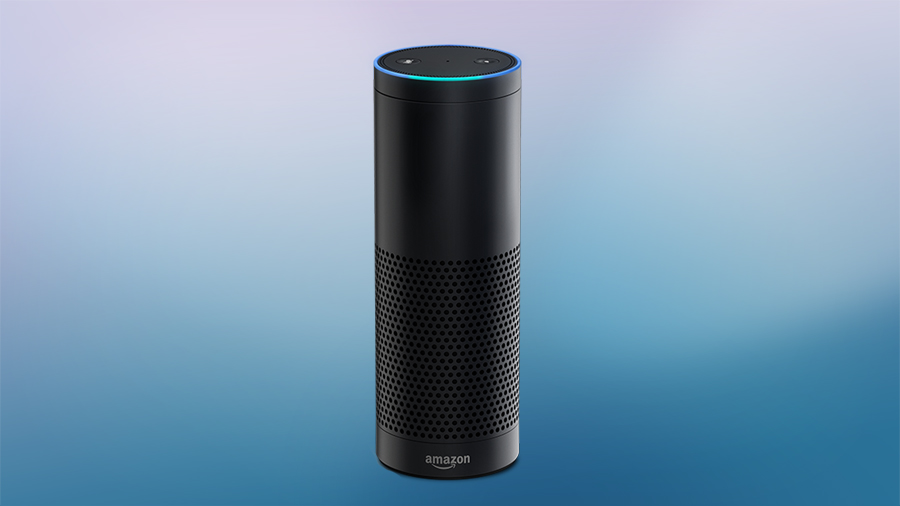Amazon Echo may just be another colossal copycat

Technology, like art, music and culture, is a discussion. A two-way street. Call and response. If something new pops up this year from Apple, expect Google to have a similar product to show you in six month’s time.
It’s no wonder then, that after Siri, Cortana, Kinect and “OK, Google,” we’d get Alexa, a personal assistant from Amazon that can do … well, everything the others do but in a Bluetooth speaker. Alexa, I should point out, is a codename. Amazon hasn’t told us what the personal assistant will be called, but only that he/she/it will come inside a cylindrical Bluetooth speaker.
The speaker itself is called the Echo - named for its ability to pick up commands from anywhere in the room with, or without, music playing. It’s smart, interesting technology that I’m personally looking forward to owning. But as cool, smart and interesting as it is, the one thing it’s not is original.
Or is it?
OK. Before I get my torch and pitchfork, I’m going to play devil’s advocate. What if Amazon isn’t just cashing in on the personal assistant fad? What if this is the next online bookstore or Kindle? The company is no stranger to innovative ideas. (If you keep reading you can’t miss them.)
Imagine a house where you could say anything, anywhere and you would get a response back. To shout from your shower “play LCD Soundsystem” or tell your television to show you the score of the football game. And, bare with me here, imagine that just working without Siri/Google/Cortana telling you that they don’t understand that command.
Maybe that’s what Amazon has planned for us.
Maybe behind the curtain its curious minds are hard at work to create a one-to-one duplicate of the eponymous house from Disney’s “Smart House.” And just maybe the Echo is the first step.
Sign up for breaking news, reviews, opinion, top tech deals, and more.
There’s an eternal optimist in me that’s rooting for that. After reading up on Amazon’s history, however, that hope for innovation has dwindled.
Steal like an artist
You see, the Echo isn’t Amazon’s first ‘me too’ idea. If you can remember back to the late ‘90s, Amazon wasn’t always a retail giant that purveyed everything from baby diapers to wolf urine. (Yes, they still sell wolf urine on Amazon.)
They started off as a quaint online bookseller. And, as far as I can tell, this was a unique idea. Becoming an online, independent book seller was something no other company had successfully accomplished before, and yet here was Amazon and its founder, Jeff Bezos, standing in the proverbial limelight.
Bezos even named the company Amazon because it was a place that was "exotic and different." And, for a few years, some original ideas kept flowing from the all-consuming ecommerce giant.
But in 1999, the idea of becoming something more than a book broker set in.
In the year before the 21st century, Amazon had an idea, one it borrowed from the market pioneer, eBay. (Does it sound weird to anyone else calling eBay a “pioneer?”) It opened a marketplace where users could buy different forms of media like CDs and DVDs directly from them. zShops, as it was called back then, went on to become the Amazon store.
What starts with Kindle and ends with Fire? Amazon … and actual fire
Fast-forward to 2007 when Amazon unveiled its first ereader, the Amazon Kindle. The device, on paper, was understated and simple. It read a new breed of PDFs that it called e-books.
This was a renaissance for Amazon. The ereader started a revolution that caught fire, further cementing Amazon as the only major generalist retailer of the 21st century. But, innovation - especially in the tech industry - is often short-lived.
Four years later the company would go on to launch a tablet, the year after that a second tablet, and two years after that a phone and set-top box. While each of these products brought at least one new feature to the table, all of them were clear indicators that Amazon was just following the trail of money. Which brings us to the announcement of the Amazon Echo...
What camp does the Echo belong in? The “me too” cash-in camp or the actual innovation hangar? All we can do is root for the latter while expecting the very real, semi-historical former.

Nick Pino is Managing Editor, TV and AV for TechRadar's sister site, Tom's Guide. Previously, he was the Senior Editor of Home Entertainment at TechRadar, covering TVs, headphones, speakers, video games, VR and streaming devices. He's also written for GamesRadar+, Official Xbox Magazine, PC Gamer and other outlets over the last decade, and he has a degree in computer science he's not using if anyone wants it.